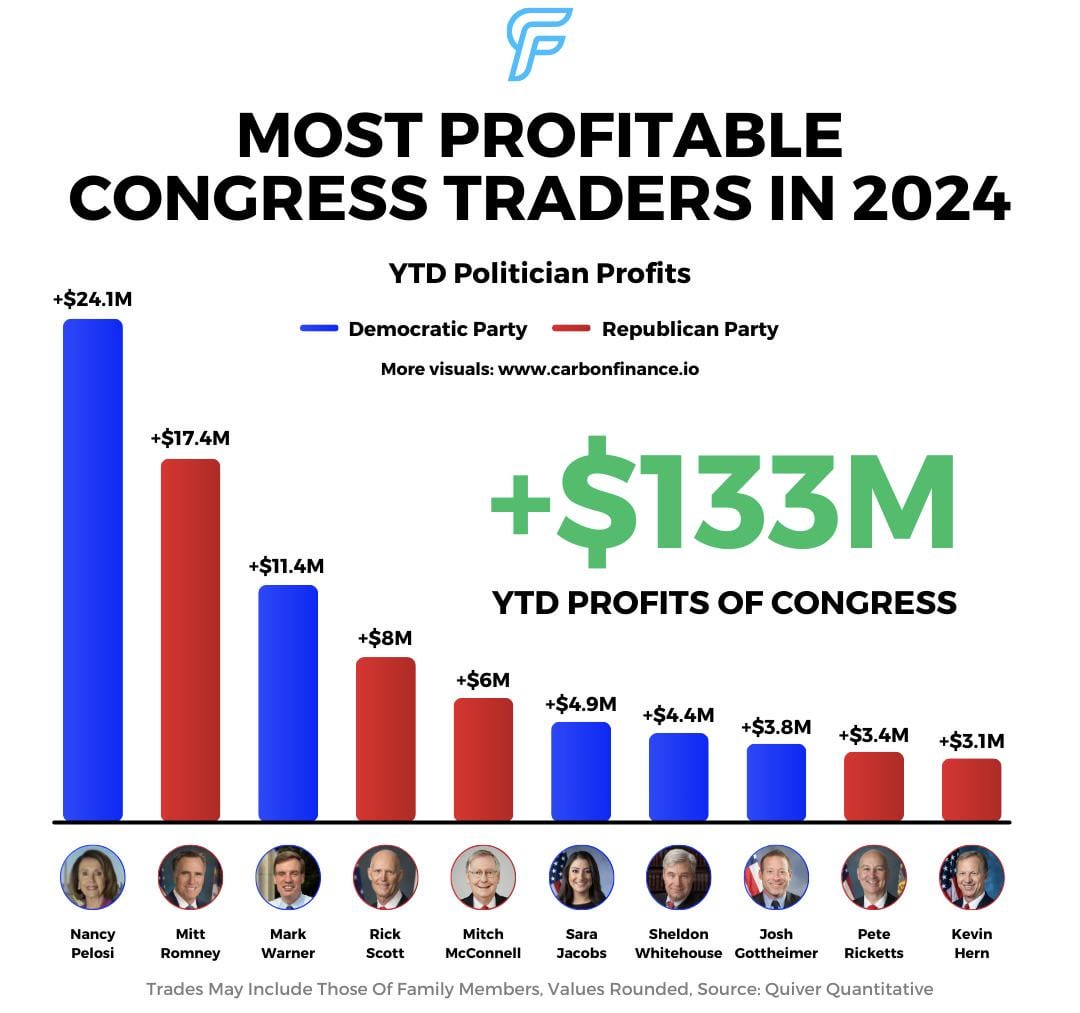Did you know that insider trading can sometimes feel like playing poker with a deck stacked in someone else's favor? In the fast-paced world of day trading, understanding the implications of insider trading is crucial. This article delves into how insider trading influences day trading strategies, market prices, and volatility. We’ll explore the risks day traders face, the legal consequences for those involved in insider trading, and how it affects market liquidity and transparency. Additionally, learn how day traders can spot insider trading activity, protect themselves from its risks, and navigate a landscape where larger investors often have the upper hand. Join DayTradingBusiness as we decode the complexities of insider trading and its far-reaching effects on day traders.
How Does Insider Trading Impact Day Trading Strategies?
Insider trading creates an uneven playing field, making it risky for day traders who rely on public information. When insiders trade on non-public info, stock prices can move unpredictably, causing sudden losses or missed opportunities. It undermines market fairness, reducing confidence and increasing volatility, which complicates short-term trading strategies. Day traders can’t easily distinguish between genuine market signals and manipulated moves, leading to potential setbacks. Overall, insider trading erodes the transparency and efficiency day traders depend on.
Can Insider Trading Skew Market Prices for Day Traders?
Yes, insider trading can skew market prices for day traders by creating unfair price movements based on non-public information. When insiders buy or sell ahead of news, they cause price swings that day traders can't predict or react to accurately, leading to distorted market signals and increased risk.
What Are the Risks of Insider Trading for Day Traders?
Insider trading risks for day traders include legal penalties like fines and prison, loss of trading privileges, and reputational damage. It can lead to market manipulation charges if they unknowingly trade on non-public information. Engaging in or even being associated with insider trading destroys trust and can ruin careers. The legal and financial consequences are severe, making it a major risk for any day trader.
How Do Insider Trading Cases Influence Market Volatility?
Insider trading cases shake market confidence, causing sharp price swings and increased volatility. When authorities reveal insider trading investigations, stocks can plunge or spike unpredictably. This uncertainty makes day traders cautious, often leading to rapid buying or selling to avoid potential losses. Overall, insider trading scandals amplify market fluctuations, raising risk levels for all traders.
Does Insider Trading Increase the Difficulty of Profiting for Day Traders?

Yes, insider trading makes it harder for day traders to profit because it creates an uneven playing field. When insiders use confidential information to trade, their advantage skews the market, leading to unpredictable price movements. This unpredictability can cause day traders to make losses or miss opportunities, as prices may react suddenly to insider moves rather than market fundamentals.
How Can Day Traders Detect Insider Trading Activity?
Day traders detect insider trading by watching for unusual price spikes or volume surges without clear news. They monitor sudden, unexplained market moves on specific stocks. Accessing SEC filings and insider transaction reports can reveal suspicious trades. Technical analysis patterns that don't match news or market trends also signal potential insider activity. Social media and news alerts may hint at undisclosed information influencing stock moves.
What Legal Consequences Do Insider Traders Face Affecting the Market?
Insider trading leads to legal charges like fines, imprisonment, and asset forfeiture, which can destabilize markets by eroding trust and causing sudden price swings.
How Does Insider Trading Affect Market Liquidity for Day Traders?
Insider trading reduces market liquidity for day traders by creating unfair information asymmetry. When insiders trade on non-public info, it causes unpredictable price swings, making it harder for day traders to buy or sell without impacting the market. This increased volatility and lack of transparency discourage day traders from entering or staying in the market, shrinking the volume of available trades. Overall, insider trading undermines trust and stability, making markets less liquid and more difficult for day traders to execute quick, profitable trades.
Are Certain Stocks More Susceptible to Insider Trading?
Yes, certain stocks are more vulnerable to insider trading, especially those with low liquidity, small market cap, or high volatility. These stocks attract insider trading because small trades can significantly move prices, and insiders have more influence or information advantage. For day traders, insider trading can cause sudden, unpredictable swings, making some stocks riskier and harder to forecast. It can lead to false signals and increased market manipulation, impacting short-term trading strategies.
How Does Insider Trading Affect the Confidence of Day Traders?
Insider trading erodes day traders’ confidence by undermining market fairness, making them skeptical about genuine price movements. When they see insiders profit illegally, it feels like the market favors the dishonest, increasing mistrust. This suspicion can lead to hesitation, reducing their willingness to execute trades or rely on market signals. Over time, frequent exposure to insider trading scandals diminishes their belief in a level playing field, shaking their confidence in honest trading opportunities.
Learn about How Regulators Detect Insider Trading in Day Markets
Can Insider Trading Lead to Sudden Market Crashes?

Yes, insider trading can lead to sudden market crashes. When insiders disclose confidential information, it can cause rapid, unpredictable price swings as traders react. This sudden influx of information skews market perception, often triggering panic selling or buying that destabilizes prices quickly. For day traders, insider trading creates unpredictable volatility, making it harder to rely on normal market signals and increasing the risk of sudden losses.
What Measures Do Regulators Take Against Insider Trading?
Regulators like the SEC monitor trading activity for suspicious patterns, investigate tips, and conduct audits. They impose fines, bans, and criminal charges on those found guilty. They also enforce strict reporting requirements and conduct market surveillance to detect illegal insider trading early.
How Does Insider Trading Impact the Transparency of the Market?
Insider trading erodes market transparency by giving insiders an unfair advantage, making markets less fair and predictable. It distorts price signals because insider information isn't available to all traders, leading to false market signals. For day traders, it increases uncertainty and risks, as prices can be manipulated by those with privileged information. This diminishes trust in the market’s fairness and can cause volatile swings, making it harder for honest traders to make informed decisions.
Does Insider Trading Favor Large Investors Over Small Day Traders?

Yes, insider trading favors large investors because they often have access to confidential information, allowing them to make informed trades and gain an advantage over small day traders who lack that edge.
Learn about Can Insider Trading Be Profitable for Day Traders?
How Can Day Traders Protect Themselves from Insider Trading Risks?
Day traders can protect themselves from insider trading risks by sticking to legal, publicly available information, avoiding suspicious tips, and maintaining strict compliance with trading regulations. Using reliable data sources and staying informed about market rules helps prevent accidental involvement. Keep clear records of your trades and sources of information to prove transparency if questioned. Avoid trading on rumors or non-public info to stay within legal boundaries and reduce insider trading risks.
Learn about How to Protect Yourself from Insider Trading Risks
Conclusion about How Does Insider Trading Affect Day Traders?
In summary, insider trading poses significant challenges for day traders, influencing market prices, volatility, and liquidity. The risks associated with insider trading can skew trading strategies and diminish overall confidence in the market. Awareness of these dynamics is crucial for navigating the complexities of trading and protecting investments. For comprehensive insights and strategies to mitigate these risks, DayTradingBusiness remains a valuable resource for day traders seeking to enhance their market understanding.
Learn about How Regulators Detect Insider Trading in Day Markets